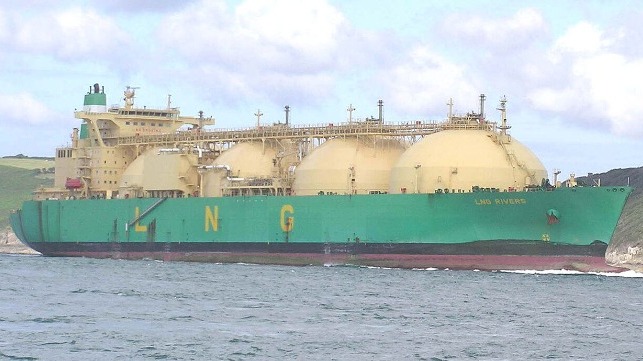Flex LNG: Russia May be Building a New "Dark Fleet" of Old LNG Carriers

Russia is likely in the early stages of assembling a new "dark fleet" of LNG carriers in order to sanction-proof its liquefied natural gas exports, according to Oystein Kalleklev, CEO of Norwegian shipping company Flex LNG.
Russia's pipeline gas exports to Europe have largely shut down, but it is still a significant supplier of LNG to the EU and to Asia. So far, that trade has not faced the same Western restrictions as Russia's oil exports. The G7 "price cap" limits Western companies' ability to carry or insure Russian crude, restricting their involvement to cargoes priced under $60 per barrel. Widespread evasion tactics have rendered the cap largely moot, according to energy analysts. As Western enforcement ramps up, Russia has maintained its export volume by using non-Western ships and insurance. The formation of a new Russia-focused "dark fleet" has driven up the price of secondhand vessels, and these aging tankers with obscure ownership now number in the hundreds.
That gray-zone operating model may be coming soon to Russia's LNG sector too: a flotilla of aging steam-plant LNG carriers could help keep Russian export volumes expanding according to Kalleklev.
"We do think the Russians are planning to do something similar to what we've seen on the oil and petroleum side," he said in an earnings conference call on Thursday. "They may be soaking up some of the [steam-propulsion] tonnage that would otherwise be scrapped."
Russia's Arctic LNG 2 export terminal has been delayed by sanctions and by the withdrawal of Western technology suppliers, but Flex LNG believes the project will eventually be completed. Between that initiative and the future Murmansk LNG, Russia's liquefied natural gas exports could double by the end of the decade.

that matters most
Get the latest maritime news delivered to your inbox daily.
Europe has yet to impose a block-wide ban on Russian LNG, but is unlikely to take the extra volumes from future Russian LNG expansion projects. These cargoes will have to go somewhere else, and that likely means buyers in the BRICS countries, Kalleklev said. Any excess volume that Europe leaves on the table will likely be soaked up by China and India - and Russia will likely find the ships to deliver it, too.
"What we have seen in the past is that the Russians have been able to get surprisingly many hydrocarbons on ships," he said. "In general, we think that all the cargoes here will be produced, and we will have a similar trading pattern to what we have seen on the product and the oil side, where the BRICS are supporting each other. . . . We do not expect any shut-in of Russian LNG. "
